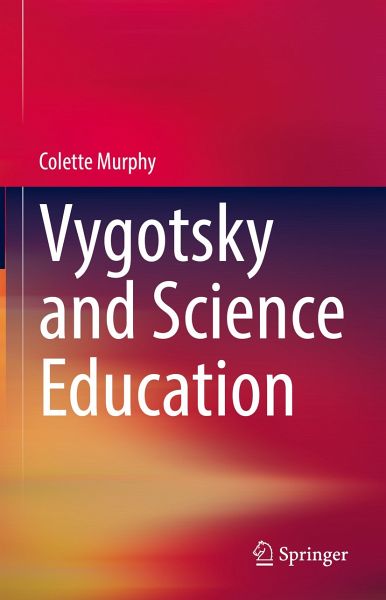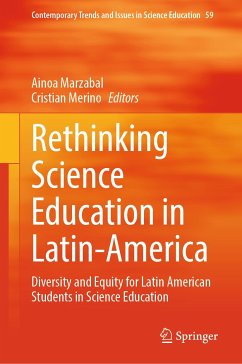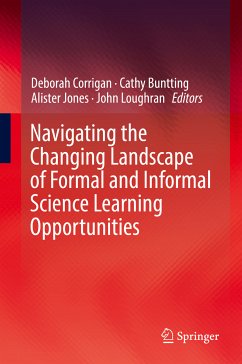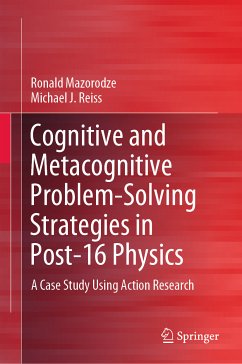
Vygotsky and Science Education (eBook, PDF)
Versandkostenfrei!
Sofort per Download lieferbar
112,95 €
inkl. MwSt.
Weitere Ausgaben:

PAYBACK Punkte
56 °P sammeln!
This book highlights those aspects of Vygotskian theory which are most cogent to Science Education, including the Zone of Proximal Development (ZPD), concept development, play and imagination. Whilst these and other Vygotskian constructs apply to both research and practice in all forms of Science Education, this book employs a specific and critical focus on one or two key concepts for each context. Thus play and imagination are explored in depth in the chapter on science in early childhood learning, the ZPD is considered in depth in the primary school science chapter, and concept development i...
This book highlights those aspects of Vygotskian theory which are most cogent to Science Education, including the Zone of Proximal Development (ZPD), concept development, play and imagination. Whilst these and other Vygotskian constructs apply to both research and practice in all forms of Science Education, this book employs a specific and critical focus on one or two key concepts for each context. Thus play and imagination are explored in depth in the chapter on science in early childhood learning, the ZPD is considered in depth in the primary school science chapter, and concept development in the secondary-level chapter. Chapters on higher education science learning and teaching, science teacher education, informal science learning, science education research, and the scientific endeavour itself draws on those aspects of Vygotskian theory which relate most closely. This book makes an important contribution to Vygotskian theory. Never before has it been applied so widelyand comprehensively to the field of science and STEM education. The book is intended for students and academics in science and STEM education and the social sciences. It is also of interest to Vygotsky scholars and those involved in the analysis of pedagogic practice within and beyond science and STEM education.
Dieser Download kann aus rechtlichen Gründen nur mit Rechnungsadresse in A, B, BG, CY, CZ, D, DK, EW, E, FIN, F, GR, HR, H, IRL, I, LT, L, LR, M, NL, PL, P, R, S, SLO, SK ausgeliefert werden.












